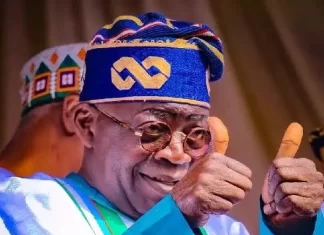By Valentine Amanze
The Petroleum Products Marketing Company (PPMC), a subsidiary of the Nigerian National Petroleum Corporation (NNPC), has hiked the ex-depot price of Premium Motor Spirit (petrol) to N151.56 per litre from N138.62 per litre.
The new price was disclosed in an internal memo from PPMC’s Ibadan depot to all stakeholders with reference number PPMC/IB/LS/020 dated September 2, 2020 and signed by D.O Abalaka.
This is despite the hardship in the country caused by coronavirus (COVID-19) and bad leadership.
The statement signed by Abalaka reads: “Please be informed that a new product price adjustment has been effected on our payment platform. To this end, the price of premium motor spirit (PMS) is now one hundred and fifty-one naira, fifty-six kobo (N151.56) per litre. This is effective 2nd September 2020.”
Most depot owners and major marketers buy the petrol directly from the PPMC, store in their own depot and then sell to other marketers and filling station owners from whom Nigerians buy.
The Federal Government had in March announced its plans to stop the subsidy payment regime as it said the downstream sector of the oil industry would be fully deregulated.
“If you look at the template the Petroleum Product Pricing Regulatory Authority (PPPRA) has been using in setting prices, you will find that if you just apply even the official exchange rate and Platts for the month of August, prices at the pump should be significantly higher than where there are today,” Adetunji Oyebanji, the managing director of 11Plc (formerly Mobil Oil Nigeria Plc), told CNBC Africa on Tuesday.
The government said that the prices of all petroleum products, which include PMS, would be fully determined by market forces most especially the international prices of crude oil.
The new increase in PMS comes after Brent futures stood at $45 a barrel in London on Wednesday, having more than doubled since late April as a result of Organisation of Petroleum Exporting Countries’ intervention and a revival in demand.
“We believe that when subsidies are removed, and you allow for price liberalisation, which means that the market will fix prices at the pump, then that will allow full cost recovery by all the operators, and with that, it means that more investments will be attracted to the industry at all levels of the value chain,” Oyebanji said.
The Nigeria government recently announced a ‘deregulation’ policy wherein the NNPC would no longer subsidise petrol for Nigerians but the PPPRA would still determine the sale price based on market forces.
Nigeria recently to devalued its currency, the naira, twice since March, and has taken its first-ever loan from the International Monetary Fund, which forecasts a 5.4 percent economic contraction this year.














